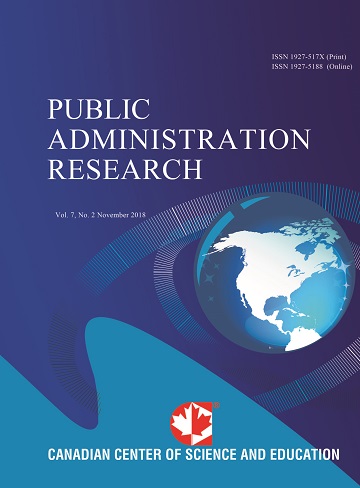Public Policy in Central America: An Empirical Analysis
- Kern Craig
Abstract
This is a cross-sectional study focusing on public policy in the seven nations of Central America: Belize, Costa Rica, El Salvador, Guatemala, Honduras, Nicaragua, and Panama. Outcomes are evaluated in terms of public wellbeing. Public policy is operationalized: with regard to business using two measures, one for economic freedom and another for corporate taxation; with regard to ethics using two measures, one for gender equality and another for corruption; with regard to openness using four measures, two external, trade and tourism, and two internal, the number of roads in a country and the number whites in a country; and with regard to contraception using a single measure, fertility. Public wellbeing is operationalized using: three economic measures, GDP per capita, lost income, and poverty rate; four societal measures, literacy rate, homicide rate, life expectancy, and lost satisfaction; and, two holistic measures, the Human Development Index and the Environmental Performance Index. Pearson correlation is used to calculate the linear association for each pair of measures. The results suggest that there is no relationship between public wellbeing and two measures of public policy: gender equality and the number of roads in a country. But there is evidently a relationship between public wellbeing and the remaining seven measures of public policy: economic freedom, corporate taxation, corruption, trade, tourism, the number of whites in a country, and fertility. And the direction of those seven relationships supports the claims of capitalists as opposed to the claims of socialists.
- Full Text:
 PDF
PDF
- DOI:10.5539/par.v2n2p105
Journal Metrics
h-index (2017): 7
i10-index (2017): 6
h5-index (2017): 7
h5-median (2017): 13
Index
- COPAC
- CrossRef
- DTU Library
- EBSCOhost
- EuroPub Database
- Excellence in Research for Australia (ERA)
- Genamics JournalSeek
- Ghent University Library
- Google Scholar
- Harvard Library
- Infotrieve
- Jisc Library Hub Discover
- LOCKSS
- Mir@bel
- Norwegian Centre for Research Data (NSD)
- Open J-Gate
- PKP Open Archives Harvester
- Publons
- ROAD
- Scilit
- SHERPA/RoMEO
- Stanford Libraries
- Ulrich's
- UniCat
- Universe Digital Library
- UoS Library
- WorldCat
Contact
- Gabriel TaiEditorial Assistant
- par@ccsenet.org
